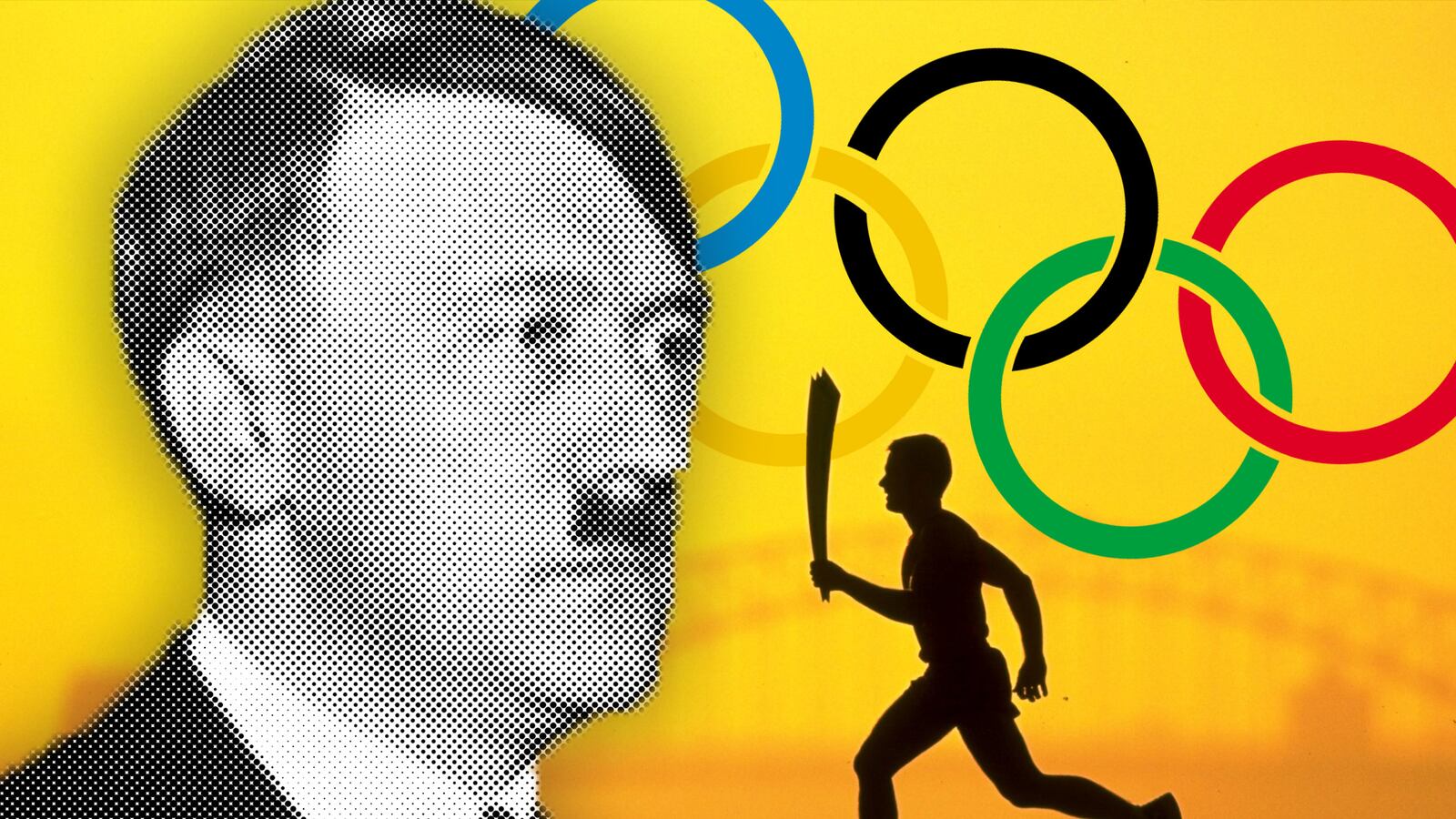You can say a lot of things about Brazil’s failings in the upcoming Olympics, from the putrid, garbage-strewn Guanabara Bay to the widely forecast traffic apocalypse on Rio’s streets. But for all their shortfalls, there’s one thing Brazilians have in abundance: the ability to laugh at themselves.
In a rather striking contrast to the London Games in 2012, which opened with a mock shot of the queen as a Bond girl doing a skydive, the Rio Games, which begin tonight, will kick off with the fake mugging of Brazilian supermodel Gisele Bundchen as she struts down the catwalk to the accompaniment of the nation’s iconic song, “The Girl from Ipanema.” (There’s been much fevered reporting on the athletes and spectators at the Games being victimized by street crime.)
Take that, haters.
The agenda for tonight’s show has been held under wraps, but secrets are hard to keep, and reports of rehearsals leaked on social media and elsewhere say that each of the 206 countries will enter the arena accompanied by its own mini samba band. Some of Brazil’s biggest superstars will make appearances: Musical titans Gilberto Gil and Caetano Veloso will sing, and Oscar-nominated actress Fernanda Montenegro and the Oscar-winning, decidedly not Brazilian, Dame Judi Dench are set to recite poems.
One of the ceremonies’ masterminds, Fernando Meirelles, director of the 2002 Oscar-nominated City of God, which depicts the explosion of urban violence in Rio’s slums in unflinching detail, told reporters last year that the show would be “a synthesis of our popular culture.” That’s apparently an understatement: after Gisele’s fake mugging, police officers leap to her rescue, and chase the robber around the stadium until he’s caught.
Another of the show’s directors, Leonardo Caetano, told the BBC that the ceremony “will show... the Brazilian way of receiving people.” Sure, there have been the unfinished athletes’ quarters and subway delays, but Brazilian warmth is remarkable: Brazilians have a multitude of different verbs for “to relax,” and aren’t shy about telling others just which way they should be trying. They’re affectionate, calling strangers “son” and “daughter”—and it’s not uncommon for business acquaintances who’ve never met to sign off their emails with kisses and hugs. Every year, the country welcomes millions of visitors for Carnival, often described as the world’s biggest party. Friday’s ceremony, to which 900 million will tune in, may rival that: it reportedly features 6,600 pounds of fireworks, 2,000 light guns, and more than 100 projectors.
You’ll never guess, though, who invented all this glitz and glamour: Nazi propagandists. (Sort of dampens the heartbreaking surprise of Muhammed Ali descending from a giant cherry picker onto the opening ceremony’s stage in Atlanta in 1996. Ali accepted the torch from swimmer Janet Evans, his hands shaking from Parkinson’s, and lit a flame that traveled to a giant cauldron above the stadium. The camera panned to roaring fans and a teary-eyed President Bill Clinton as Bob Costas intoned: “Look at him—still a great, great presence, still exuding nobility and stature.”)
Even the Olympic torch might seem like a link to the earliest democracy, but it’s not: The modern torch relay, which now begins with a hokey ceremony in Olympia, the birthplace of the original games around 776 B.C., and travels the globe to the hosting cities, was the brainchild of Carl Diem in the early 1930s. Diem, a German long-distance runner and sports historian, became the chief organizer of the Berlin Games.
“Diem was aware of the use of the lit torch in the ancient games, though nothing exactly like the torch run relay existed,” said Susan Bachrach, a historian at the U.S. Holocaust Memorial Museum and the author of The Nazi Olympics: Berlin 1936.
Creepily, even the newly minted ritual’s equipment hinted at the mass destruction that was about to unfold. The bulky Berlin torch holders were made by the Krupp company, an arms manufacturer that produced weapons for Germans in World War II, and Krupp’s artillery production would become an essential element in decisive Nazi battles. As Max Fisher wrote in a 2012 Atlantic piece, the company trucked in Jewish women from Auschwitz to a nearby plant as slave laborers.
Nazi propagandists and pageantry suggested that Hitler’s Aryans were the direct heirs of ancient Greek civilization, said David Wallechinsky, president of the International Society of Olympic Historians and who has written extensively about the games for decades. Leni Riefenstahl helped immortalize the imagery by capturing the torch run relay through Bulgaria, Yugoslavia, Hungary, Austria, and Czechoslovakia for Olympia, her 1938 film on the games.
But opening ceremony ignominy didn’t start in Berlin: Consider the 1904 games in St. Louis, which kicked off with crowds of athletes milling around some public buildings in what looks like barely controlled chaos. Only about a dozen countries bothered to show up for Games in the minor U.S. city, which was also hosting the World’s Fair. (Not even the thrilling new temptations of cotton candy, peanut butter, and waffle cones could persuade most athletes to make the trip, Slate reported in 2008.)
The ceremony kicked off nearly five months of competition, and, lest today’s Games followers think only recent athletes have tried to gain an illicit edge through doping, reflect on gold-medal cheater Fred Lorz. He was the first to cross the marathon finish line, but was disqualified when officials discovered he’d hopped into a car for almost half the race.
That fraud seems like a mild scandal compared to what organizers called “Anthropology Days,” in which groups of Pygmies, Sioux, and Igorot Filipinos and others in the fair’s “human zoo” exhibits were paid to participate in competitions that included mud slinging, a greased-pole climb, and archery. Baron Pierre de Coubertin, a Parisian aristocrat who founded the first modern games in Athens in 1896, was appalled: “As for that outrageous charade, it will of course lose its appeal when black men, red men and yellow men learn to run, jump and throw, and leave the white men behind them.”
The Rio Olympics, held in a country where more than half the population identifies as mixed race or black, are sure to have a far more inclusive air. Organizers say they’ve kept their budget low, in contrast to lavish shows in Sochi and London. London’s 2012 ceremony cost a reported $42 million, crafted by Slumdog Millionaire director Danny Boyle, with actors and dancers rocketing through momentous periods of British history. “I’d be ashamed to waste what London spent in a country where we need sanitation, where education needs money,” Meirelles has said.
London spent $14.8 billion total on its opening ceremonies and games, downright cheap compared to the 2014 Winter Games in Sochi, which cost a reported $51 billion. Rio is trying to keep its costs to 7.4 billion reais ($1.8 billion) for the 16 days of competition and the opening ceremony. Brazil’s economy, which has sunk in recent years in large part due to the collapse of the oil industry, is in its biggest crisis since the 1930s.
Caetano said the ceremony—held amidst epic global political divisiveness—will emphasize the importance of preserving the planet, and how modern Brazilians have come together to create their multiracial society. “For the world, it will be an updated view of what… being a Brazilian is. An opportunity for the world to see the current results of our history and of our miscegenation.
“It will show,” he said, “Brazilians’ ability to do more with less.”






